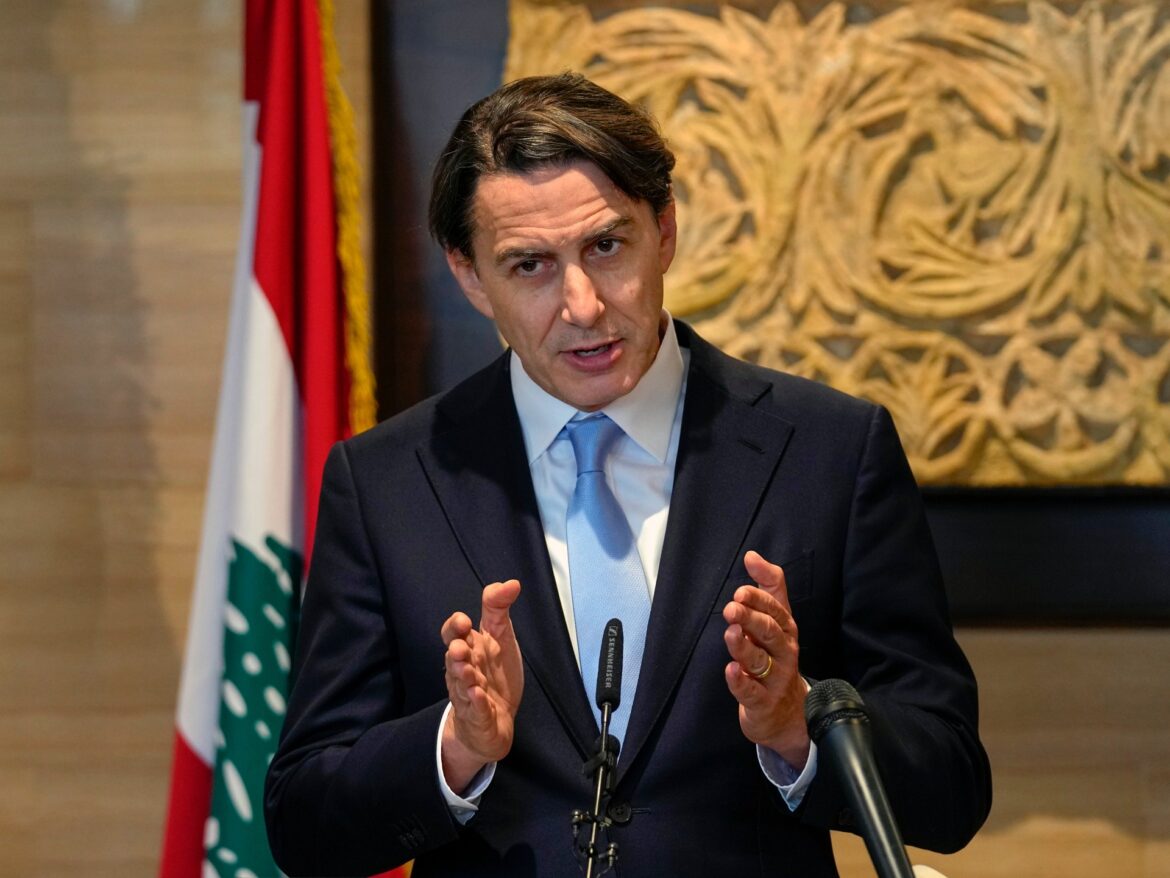The United States says an end to cross-border hostilities is “urgent” as the war in Gaza threatens to escalate into a major regional conflict.
The United States is working to prevent “a bigger war” between Israel and Hezbollah, a White House envoy said, amid growing fears of a major conflict between the two sides.
Speaking Tuesday during a trip to Lebanon, where the Iran-aligned armed group is engaged in near-daily clashes with Israel, Amos Hochstein said the United States was urgently seeking to deescalate a conflict which threatens to intensify since its start in October. with the war in Gaza.
Hezbollah and Israel have regularly exchanged fire across the Israeli-Lebanese border over the past eight months. Last week, the Lebanese group fired hundreds of rockets and drones at Israeli military sites after the death of one of its commanders.
Speaking after meeting with Lebanese Parliament Speaker Nabih Berri, a close Hezbollah ally, Hochstein called for “urgent” de-escalation.
“We have seen an escalation in recent weeks. And what President Biden wants to do is avoid further escalation into a bigger war,” Hochstein told reporters.
The US envoy visited Beirut following meetings in Israel on Monday. Israeli daily Haaretz reported that he had warned Israeli officials that continued confrontation between Israel and Hezbollah could lead to a “large-scale Iranian attack.”
In Beirut, Hochstein said it was in “everyone’s interest” to resolve the conflict quickly and diplomatically. “It’s both achievable and urgent.”
“Diplomatic framework”
Hochstein’s visit comes as Hezbollah unilaterally suspended its attacks for two days during the Muslim holiday of Eid al-Adha, which began on Sunday. But that pause ended Tuesday when Hezbollah said it had targeted an Israeli tank with a suicide drone.
The Lebanese group also released a nine-minute video of what it says is footage from its surveillance drones brought back from Israel. The video showed and identified military installations in the north of the country as well as key infrastructure in Haifa – Israel’s third largest city – including a power plant.
Hezbollah has said it will not end its attacks in northern Israel unless a ceasefire is reached in the Gaza Strip.
Israeli Prime Minister Benjamin Netanyahu said earlier this month that “one way or another we will restore security to the north,” and his hardline nationalist coalition partners called for an aggressive military response .
The Israeli military said Monday it had killed a “central operative” of Hezbollah’s rocket division in a drone strike.
The US State Department said late Monday it was advancing a proposal aimed at avoiding a full-scale conflict.
“There is a diplomatic framework that we believe is feasible that would resolve this conflict without all-out war,” a spokesperson said.
In Beirut, Hochstein called for adoption of the Gaza ceasefire proposal pushed by the Biden administration in the hope that it would quickly bring peace across the “Blue Line,” referring to the controversial border between Israel and Lebanon.
“A ceasefire in Gaza and/or an alternative diplomatic solution could also end the conflict across the Blue Line” and allow the return of displaced civilians to southern Lebanon and northern Israel, did he declare.
Hezbollah recently said it had carried out more than 2,100 military operations against Israel since October 8. The Lebanese group began its attacks with the outbreak of the war in Gaza, in what it sees as an effort to support the Palestinians.
The violence on the Israeli-Lebanese border has left at least 473 dead on the Lebanese side, most of them combatants but also 92 civilians, according to an AFP report.
Israeli authorities say at least 15 soldiers and 11 civilians have been killed in the north of the country.



